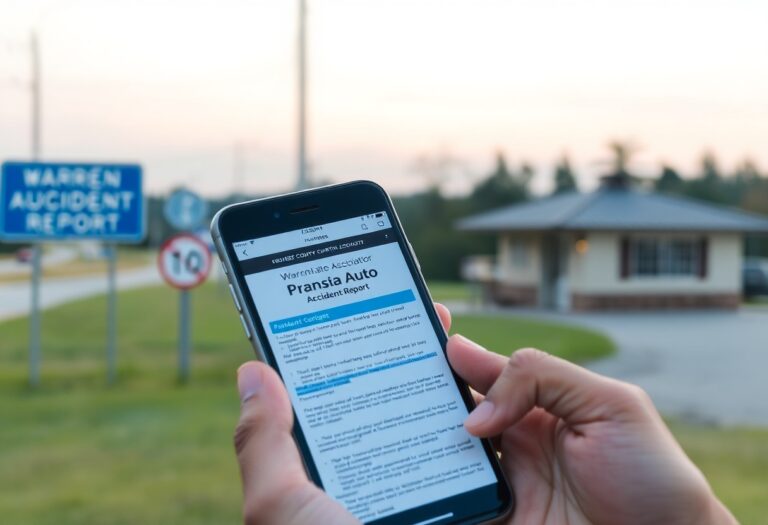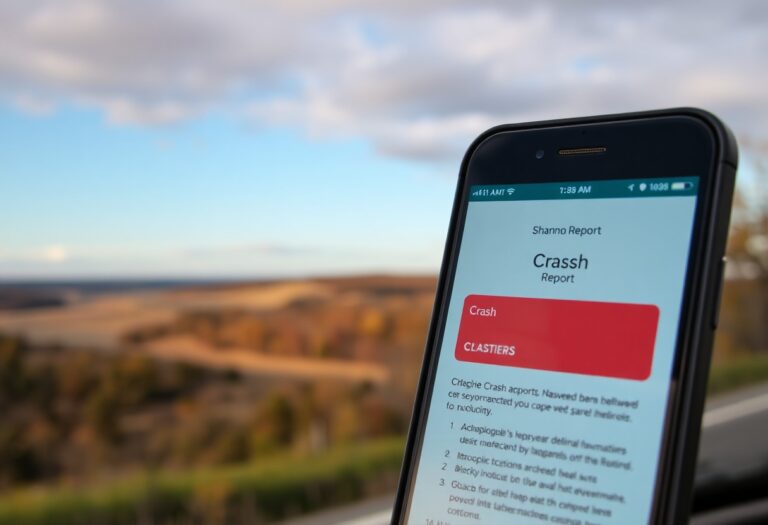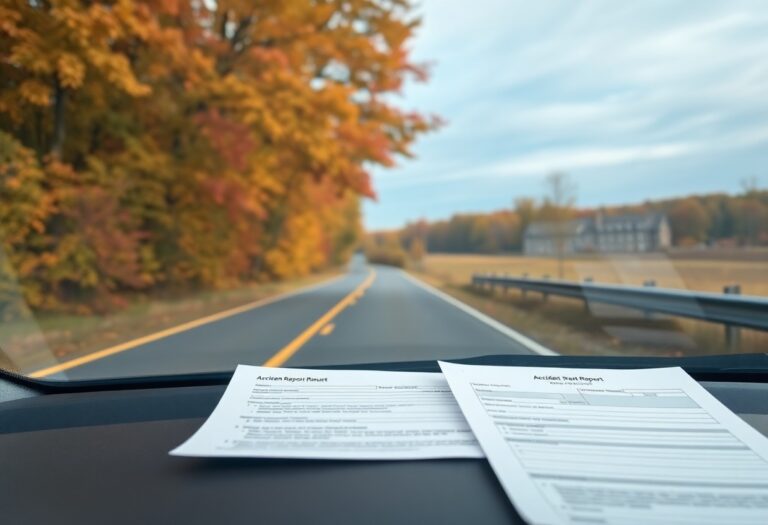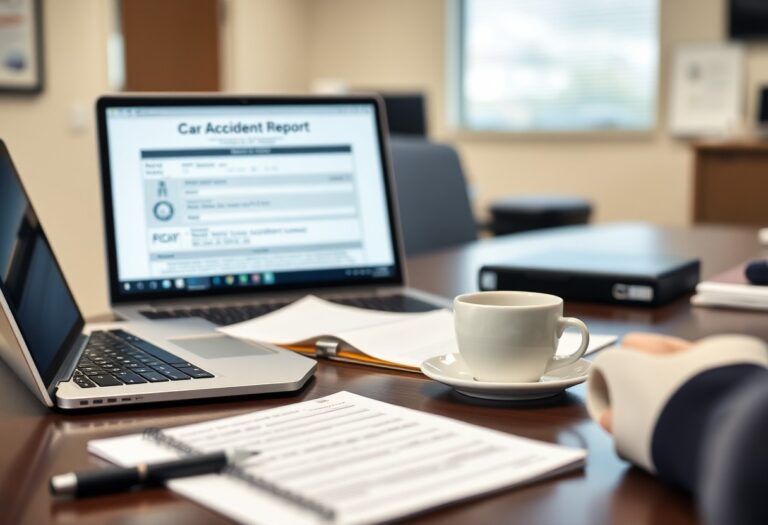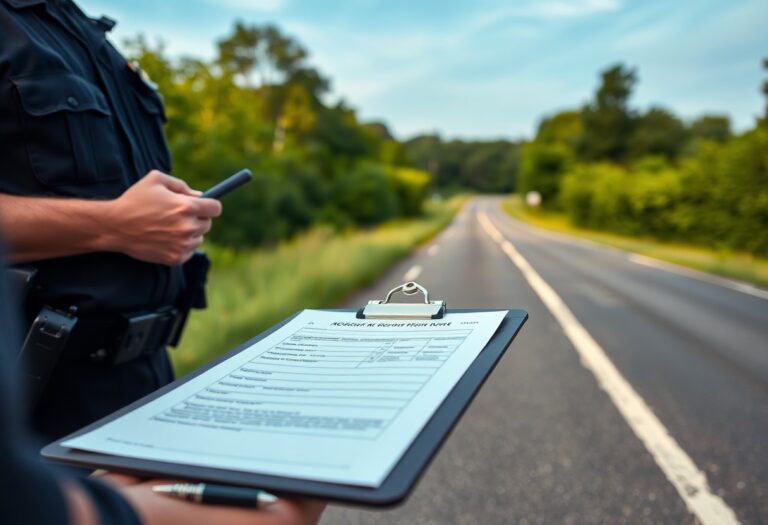You may find yourself in a challenging situation after a car accident in Dare County, North Carolina, but you don’t have to navigate it alone. Understanding the process of filing car accident reports can ease your stress and ensure you meet important deadlines. With easy, guided support available, you can confidently gather the necessary documentation and work through the required steps. Knowing the right resources and information can protect your interests and help you recover from the incident more smoothly.
Navigating the Post-Accident Terrain: Essential Steps to Take
After an accident, your immediate focus should be on ensuring safety and collecting necessary information. Assess the situation for injuries to yourself and others, then move to a secure location if possible. Call emergency services and file a police report, as this documentation will be invaluable later on. Exchange information with any involved parties, including names, contact details, insurance information, and vehicle specifics. Capture photographs of the accident scene, vehicle damage, and relevant surroundings for future reference. These actions will lay the groundwork for a smoother claims process down the line.
Safeguarding Your Health and Well-Being
Prioritizing your health following an accident can significantly impact your recovery journey. Even if you feel fine initially, some injuries, such as whiplash or concussions, may manifest hours or days later. Seek medical evaluation promptly, especially if you experience symptoms like headaches or dizziness. Keeping records of medical visits, treatments, and expenses will be beneficial later for any insurance claims or legal matters.
Understanding the Immediate Legal Obligations
Legal obligations following a car accident in North Carolina include >stopping at the accident scene, assisting injured individuals, and reporting the incident to law enforcement. North Carolina law mandates that you must provide your driver’s license, vehicle registration, and insurance details to other parties involved. Failing to do so can lead to penalties, including fines or loss of your driving privileges. Additionally, North Carolina follows a fault-based insurance system, which means that determining who is at fault is imperative for making insurance claims and possible lawsuits.
In North Carolina, you have to file a report if the accident resulted in injury or significant property damage. Investigating officers typically complete these reports, but you should also document your version of events as soon as possible for accuracy. Being aware of the three-year statute of limitations for filing personal injury claims helps clarify timelines; acting quickly can often lead to better outcomes in your case. Ensuring adherence to these legal obligations not only protects your rights but also lays the groundwork for a just resolution to the incident.
The Art of Documentation: Crafting Your Accident Report
Effective accident documentation is vital in supporting your case and ensuring that all necessary information is recorded accurately. A well-crafted accident report can significantly impact the outcome of insurance claims and legal proceedings. Focus on clarity and detail as you document the events surrounding your incident. This is not just a routine task; it’s a key component in advocating for yourself and securing your rights after an accident.
Key Elements to Include in Your Report
Your accident report should encompass vital details for it to be effective. Include the date, time, and location of the accident, as well as the names and contact information of all involved parties. Witness statements can provide additional support, so document their names and information as well. Detailed descriptions of the vehicles involved and precise accounts of what occurred are also necessary. Lastly, note any injuries sustained and medical assistance sought.
Common Pitfalls to Avoid When Reporting
Being mindful of these pitfalls can ensure a more robust accident report. For instance, instead of saying, “I think the other driver was speeding,” provide precise observations such as, “The other vehicle appeared to be traveling at a high rate of speed when it collided with my car.” Keeping your statements factual and detailed enhances both the clarity and reliability of your report, making it a powerful tool in your favor during any claims process or legal considerations.
Accessing Local Resources for Comprehensive Support
Utilizing local resources in Dare County can significantly streamline the process of managing the aftermath of a car accident. From obtaining legal advice to connecting with healthcare providers, these resources offer the guidance needed to make informed decisions. Engaging with community services not only helps you navigate the complexities of your situation but can also provide emotional and practical support as you recover.
Government and Law Enforcement Assistance
Your first point of contact following a car accident should often be local law enforcement. They are responsible for filing official reports, which are crucial for insurance claims and legal proceedings. You can obtain copies of accident reports directly from the police department or through the county’s online portal. Be sure to check local regulations regarding report accessibility to ensure you get the documentation you need.
Community Organizations Offering Guidance
Dare County is home to several organizations dedicated to supporting individuals affected by car accidents. These community resources can provide you with legal advice, medical assistance, and even counseling services. Local non-profits, such as the Outer Banks Community Foundation, often have programs that assist victims in navigating the aftermath, including financial aid and referrals to qualified professionals.
Community organizations play a vital role in facilitating a smoother recovery process. For example, the Dare County Department of Health & Human Services may offer health resources and rehabilitation programs specifically tailored for accident victims. Additionally, many legal aid groups in the area provide free consultations to help you understand your rights and options. Engaging with these entities can be invaluable in ensuring that you have the holistic support necessary to recover comprehensively and effectively.
What to Expect: The Process After Filing an Accident Report
Following the filing of your accident report, the next steps will unfold methodically. Initially, your report will be reviewed by law enforcement, insurers, and potentially legal representatives. They will gather information, witness statements, and expert opinions to clarify the circumstances surrounding the accident. This stage may involve interviews or further documentation if necessary. Be prepared for inquiries, as thoroughness is key to understanding liability and supporting claims effectively.
Timelines and the Subsequent Legal Journey
The timeline post-accident can vary significantly based on complexity. Typically, you can expect the investigation to take several days to weeks. Your insurance company may take around 30 days to assess liability after receiving the report. If your case escalates to litigation, the process can extend into months or even years, depending on court schedules and negotiations. Stay proactive by staying in communication with involved parties to keep informed of any developments.
Understanding Your Rights and Possible Outcomes
Awareness of your rights following an accident lays the groundwork for effective advocacy for your case. You are entitled to seek compensation for lost wages, medical expenses, and pain and suffering. The outcome may result in a settlement out of court or a trial, depending on the evidence collected. Settlements typically occur quicker but might yield less compensation compared to a favorable trial verdict.
In addition, understanding your rights means being aware of the statutes of limitations governing personal injury claims in North Carolina, which is typically three years from the date of the accident. If you miss this window, your right to seek compensation could be barred completely. Moreover, insurance policies often have specific terms regarding your rights, including obligations to report claims promptly. Familiarizing yourself with these elements in your particular case can make a significant difference in the potential outcomes, enabling you to make informed decisions aligning with your best interests.
Leveraging Technology for Effortless Reporting
Modern tools significantly simplify the process of reporting car accidents. With user-friendly interfaces and real-time updates, you can quickly access the information you need, ensuring that imperative details are documented effectively. Equipped with various technological advancements, reporting can be done at the scene of an accident, saving you valuable time and reducing the stress of navigating lengthy paperwork later on.
The Role of Mobile Apps and Online Tools
Mobile apps and online platforms have transformed how you report car accidents. These tools enable you to capture photos, document witness information, and submit reports directly from your smartphone. Many apps even integrate GPS and location features, providing accurate details about the accident site, which can be crucial for insurance claims and legal purposes.
Benefits of Digital Record-Keeping in Accident Reports
Digital record-keeping offers you enhanced accuracy and quicker access to vital accident information. With organized and easily retrievable records, you can ensure that no detail is overlooked when filing claims or involving law enforcement. Digital reports often include timestamps and location data, which strengthen your documentation and can be instrumental in resolving disputes or claims.
Embracing digital record-keeping also means more effective data management. You can access your accident reports anywhere at any time, eliminating the risks of lost or damaged paper files. This centralized approach not only streamlines communication with insurance companies but also allows you to keep your information up-to-date with minimal hassle. Having digital records readily available ensures you stay informed and better prepared to tackle any challenges following an accident.
Final Words
Conclusively, navigating the aftermath of a car accident in Dare County, North Carolina, can be simplified with structured support for your accident reports. By understanding the steps to take and utilizing available resources, you can ensure that your documentation is accurate and comprehensive. Whether it’s collecting information or reaching out for assistance, taking the right actions will empower you during this challenging time. Your proactive approach will help you manage the process effectively, allowing you to focus on recovery and moving forward.







